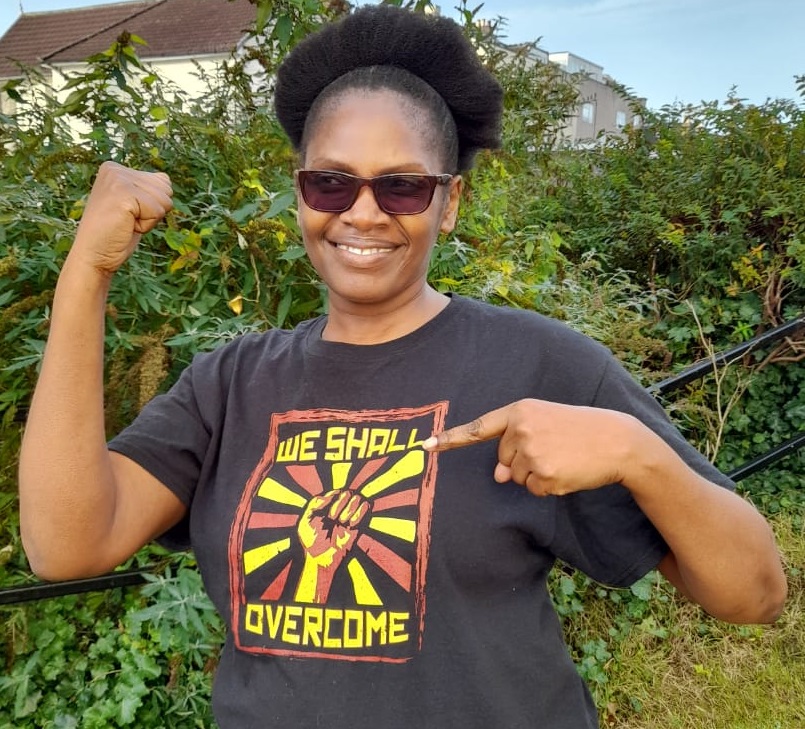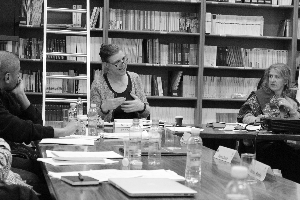The £98,971 funding** was awarded to the Wellspring Settlement (WS) by Power to Change, an independent charitable trust that supports community businesses in England. The funding will enable WS to pilot ‘Boost Breakthrough’, a six-month training scheme designed to empower local people to support each other in developing financial aspiration plans and recover from difficult financial situations.
The funding followed a bid proposal developed by WS that captured its response to COVID-19 and the emergency work it put in place to support residents of the Lawrence Hill area* during lockdown. The supporting research report produced by University of Bristol (UoB) students, indicated that the assistance provided by WS enabled the community to look beyond their immediate problems and begin to strive for a better future.
Joanna Holmes, Co-Director of WS commented: “This funding represents an important piece of work for us and reflects the huge amount of work put in by the WS team to respond to the extraordinary circumstances facing the community during lockdown. The research students at the University of Bristol produced helped capture what this support meant to local residents - and was used as supporting evidence in the bid.”
The research, supervised by the Law School's Professor Morag McDermont, captured the impact of interventions provided by WS from March 20 to July 6, 2020 and helped develop an understanding of the changing needs of the Lawrence Hill community during the lockdown period.
One of the key themes identified by students was ‘re-imagining life post-lockdown’ and illustrated how, by the end of lockdown, community members had begun to think beyond simple material needs and started to express hopes and aspirations for the future, both personal and for a better society, rather than a return to normal.
The role WS played in assisting mutual aid amongst neighbours was cited as being particularly beneficial. Community members felt valued, experienced pride in helping others and expressed joy at making new friends or using technology for the first time. This was described as providing the strength to overcome emotional hurdles and start making practical steps towards changing their situations – and was particularly important for those living with domestic issues during lockdown, the impact of which was widely reported in the national media at the time.
“This year I’ve had to re-evaluate my whole life. Lockdown was hard. Being in an abusive relationship means you often blame yourself for everything. But the Wellspring Settlement and the community there have made me feel valued and treasured as a human being. I live day to day, but I have much-improved my self-esteem. I am shaking off the guilt of dealing with a failed relationship and am able to manage the needs for my child and me. I hope other parents get to experience this service because it has enriched my child’s life and mine greatly,” said one community member in a recent interview.
One of the students involved in the project, Judith Kibuye, is an MSc student and a single mother-of-three from Kenya. She understands the sensitivities and difficulties facing individuals living with domestic issues, having been in an abusive relationship herself for more than 10 years.
If I hadn’t got the internship, I would still have volunteered because the aims of the scheme are so close to my heart and the challenges facing residents mirrored my own. The work became a lifeline in a very tough time, giving me a renewed sense of purpose and the power to make a positive impact. My choice of course was influenced by a strong belief in evidence-based interventions. Knowing that the grant from Power to Change was supported by the report, and therefore based on evidence, is a dream come true."
Judith’s story is available in full on the project page.
During lockdown, WS provided community members with practical support such as shopping and prescription collections whilst introducing value-add services such as a Community What’s app Group, a Befriending Service and training.
The students were funded by the University’s Temple Quarter Engagement Fund (TQEF). The project is part of a TQEF drive to nurture projects that foster collaboration between staff, students and our city partners – in this instance embedding students in social science research co-produced with a range of external partners within the Bristol city region. This approach forms the basis of the ‘Bristol Model’, launched by the University’s Professional Liaison Network last month with £500k of funding from the Office for Students and Research.
More information about the Wellspring Settlement’s response to COVID-19, and the related research, is available on the project page.
** £98,971 was awarded through the Covid-19 Community-Led Organisations Recovery Scheme (CCLORS), run by Power to Change, Locality, The Ubele Initiative and Social Investment Business on behalf of The National Lottery Community Fund.

